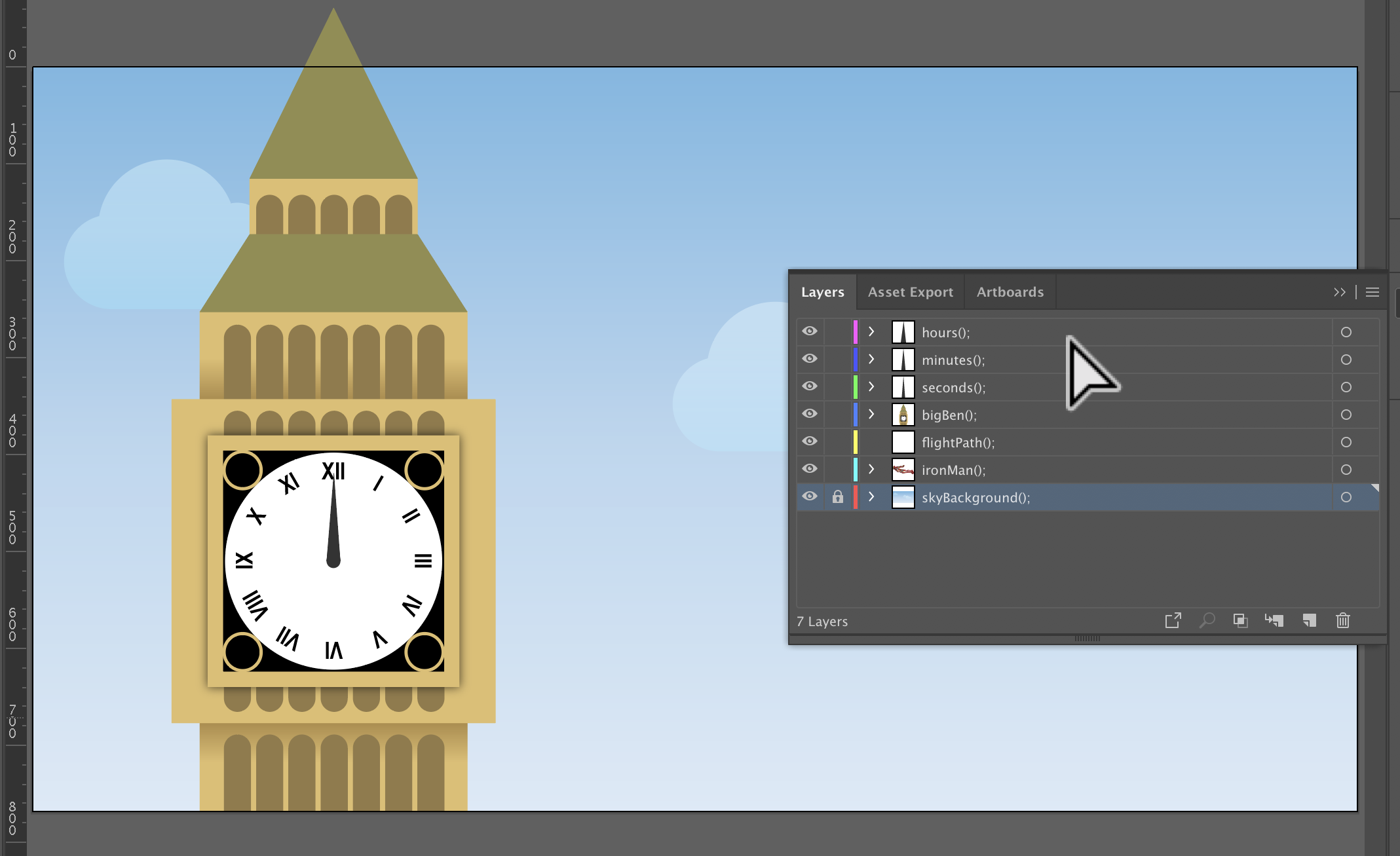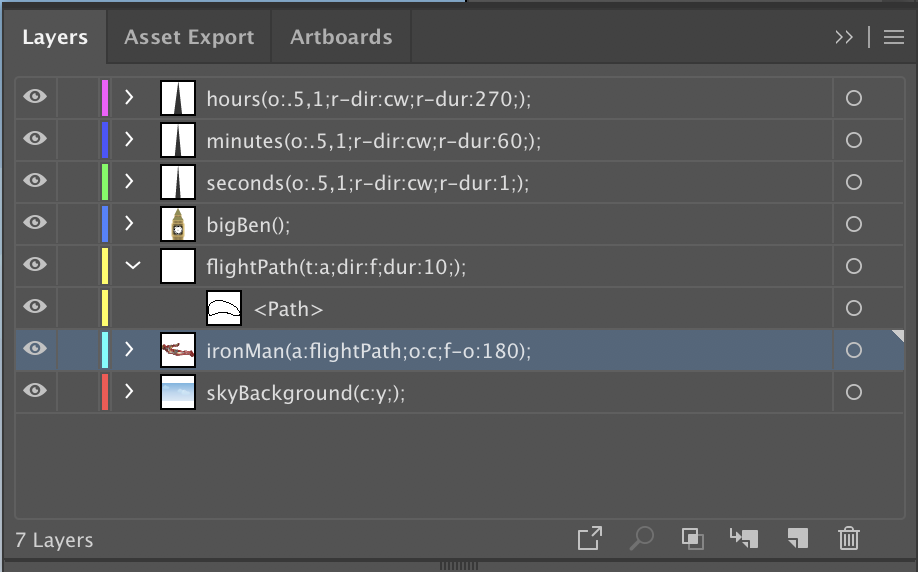An excellent foundation for freelancers!
October is Cybersecurity Awareness Month
Adobe XD in “Maintenance Mode”
I just noticed this today on the Adobe XD Help Page (https://helpx.adobe.com/support/xd.html).

Adobe recently purchased Figma, but is still hammering out the details. Perhaps one day XD and Dreamweaver will go the way of Muse and GoLive? It’s probably a good idea to learn Figma right about now. They have great training titles on LinkedIn Learning (https://www.linkedin.com/learning/figma-essential-training-the-basics/the-basics-of-figma).
Web Animation Workshop (Apr. 20, 2021)
Today, at the #D3Expo2021 Virtual Exhibition, I’ll demo this HTML5 Canvas Animation featuring my favorite superhero flying over London’s Big Ben. Everyone’s invited. Come on down, y’all!!!
Download .ai file, plugin and documentation here.

Completed web page:
Good-bye Flash Player on Google Chrome
Say “good-bye” to Flash Player on Chrome. The Keyword, Google’s blog, announced that the plugin will no longer be supported by the end of 2020. A message began appearing today under my bookmarks bar, asking me to turn off the plugin now, but I enjoy listening to Music Choice at work via Xfinity Stream, which requires Flash Player, so Comcast has a little catching up to do.

In the 1990s through the 2000s, Flash was the premiere delivery platform for multimedia content on the web. With the introduction of mobile devices, Apple’s iPhone and iPads as well as Android smartphones and tablets, it became clear that Flash was not compatible. Steve Jobs wrote an open letter to Adobe stating six reasons why Flash would never be allowed on Apple mobile devices. Among them: security issues, battery life, incompatibility with touch-screens, crashes, but most importantly Flash is owned by one company, Adobe, and no part of the web—especially a significant amount of traffic such as multimedia content—should be owned by one company. HTML5, CSS3 and JavaScript are open-source technologies, and have become the new standards for multimedia on the web.
Check out my responsive web design classes at Miami Dade College. I teach how to create HTML5 pages that adapt to various viewport dimensions by using CSS media queries for presentations on smartphones, tablets, laptop and desktop browsers. Classes start August 26th.
Michael Bierut and Jessica Helfand on the so called “Death of the Magazine.”
From The Observatory Podcast, Episode #96, Wither the Magazine. 17:00>>
Bierut: “Oddly enough, the death of the magazine has been announced loudly over and over and over again, we’re in a golden age of magazine and publication design.”
Helfand: “Right. Print isn’t dead.”
Bierut: “Print’s not dead, and new magazines spring up all the time.”
Follow Michael Bierut on Twitter at @michaelbierut and Jessica Helfand at @jessicahelfand.
Kate Moross on Ownership, Authorship, Caring and Overdelivering
From Design Matters with Debbie Millman: Kate Moross, Feb. 11, 2019.
28:00>>
Moross: “Complete your coursework as best you can, and if you can add extra outcomes to a project, do it, even if it not required. If you’re asked to design a poster, do a series. If the brief is to develop a brand identity, sketch out a website and a set of stationery to complement your work.”
“Always overdeliver. It can give you a huge advantage. It’s part of our business model to do that. In the right places, with the right judgment, it can set you apart from someone else who will do literally the bare minimum. I even had a meeting today with a client, who said, ‘When we ask you to do something, you do it, and then you do more, and then when we ask other people to do something—say the same pitch or brief—they’ll do just what is required and no more, and maybe even less than what is required.’”
“So many people can get involved with something that there isn’t anyone who is given authorship or ownership of a project, so that people don’t care anymore, and I think caring and authorship and ownership are so important in design, that if you take that power away from someone, whether it’s a colleague… or a collaborator… they all do as little as they can to get through, because they don’t care, because you’ve taken away their powers… that is a big problem in our industry: design by jury… when you don’t have a relationship with the work, the client or the process, so you just don’t give, and you don’t care, and therefore, you’ll do just the thing you’re asked to do because that’s the contract, and nothing else.”
Millman: “And then generally, very little happens after that.”
Moross: “Yeah, and then people become very out-of-love with what they do, which is a big problem, I think.”
Follow Kate on Instagram @katemoross and Debbie @debbiemillman.
Japanese Bookbinding (Tutorial)
See it live and in person tomorrow (Thursday) at the final day of the D3Expo! You’re all invited to this free event. Download PDF here. #d3expo
Animating a Red Carpet Scene (Tutorial)
Download the PDF here!




You must be logged in to post a comment.